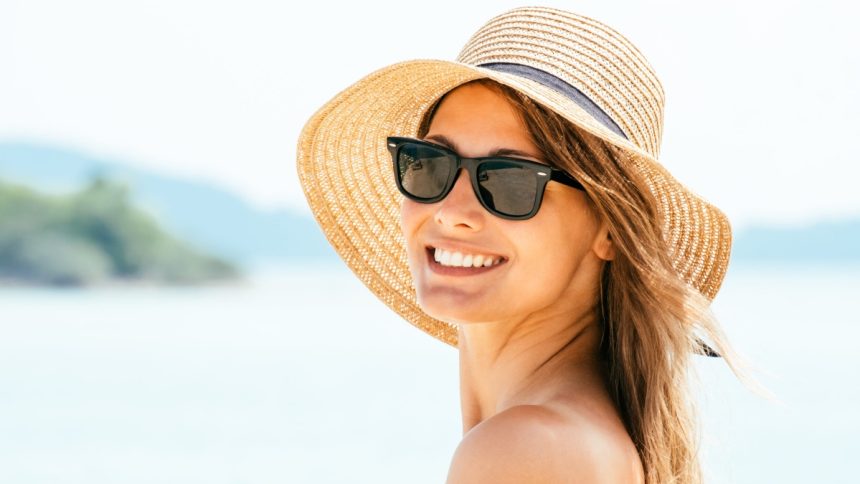Living in tropical countries means enjoying abundant sunshine year-round. But with those bright rays comes the responsibility of protecting our eyes from ultraviolet (UV) radiation. Just as sunscreen shields your skin from sun damage, taking preventive measures for your eyes is crucial for maintaining long-term vision health.
So, what can you do to shield your eyes from the sun?
1. Sunglasses: Your First Line of Defence
Prolonged exposure to UV radiation can contribute to eye conditions like cataracts, macular degeneration, and even certain types of eye cancer. However, sunglasses can be your first line of defence against these concerns, acting as a barrier between your eyes and these invisible rays.
To ensure your sunglasses provide adequate protection, consider the following:
Lens Category
Sunglasses are categorised based on the intensity of light they filter. At the same time, you must consider the environment and the activities you’ll engage in when choosing the right category for your sunglasses.
Here’s a general guideline:
- Category 0: Primarily used for fashion purposes and offers minimal UV protection.
- Category 1: Suitable for cloudy days or low sun exposure.
- Category 2: Appropriate for partly overcast days.
- Category 3: Ideal for bright sunny days, including holidays at the beach or in the city.
- Category 4: Offers maximum protection for exceptionally bright settings like high altitudes or open water, but these are not suitable for driving.
Regardless of the category, always ensure your sunglasses block both UVA and UVB rays. Additionally, look for labels that clearly state “100% UV protection” or “UV400” for guaranteed protection.
Frame Style and Size
The frame size and style also play a role in how well your eyes are shielded. For example, larger frames and wrap-around styles provide better coverage by minimising the amount of light that can reach your eyes from the sides and top.
2. UV Coatings for Indoor Light Protection
While we often associate UV damage with the sun’s rays, it’s important to remember that artificial light sources indoors can also emit harmful UV radiation. For example, fluorescent lights, halogen bulbs, and even LED screens can contribute to cumulative UV exposure over time.
When you’re indoors, UV coatings can offer an additional layer of protection for your eyes. These specialised coatings are applied to lenses to block UV radiation from reaching your eyes. Plus, UV coatings can be added to both clear and tinted lenses, enhancing the protection of your everyday eyewear or prescription glasses.
3. Lifestyle Adjustments for Enhanced Eye Protection
Protecting your eyes from UV damage involves more than just wearing sunglasses. You can also adopt certain lifestyle habits to reduce your exposure to harmful UV radiation, especially during peak hours and in high-risk environments.
Here are some practical tips to keep in mind:
- Seek Shade: When outdoors between 10am and 4pm, stay within shaded areas as much as possible.
- Wear a Hat: A wide-brimmed hat provides an additional layer of protection by shading your face and eyes.
- Be Mindful of Reflective Surfaces: Water and sand can reflect UV rays, increasing your exposure. So, even on cloudy days, be extra cautious in these environments.
- Stay Indoors on Intense UV Days: If the UV index is particularly high, consider limiting your time outdoors. It’s also a good practice to check the UV index forecast online or through weather apps before going out.
Prioritise Your Eye Health Today
Protecting your eyes from UV damage is a lifelong commitment, and you can reduce your risk by taking proactive steps like wearing sunglasses, choosing UV-protective coatings, and making smart lifestyle choices.
And if you want to be sure about the type of UV coating and sunglasses best suited for your needs, consult the experienced opticians. For instance, when you visit EyeWise Vision Clinic, you can have a personalised consultation to get the most appropriate solution for your lifestyle and visual requirements.
Lynn Martelli is an editor at Readability. She received her MFA in Creative Writing from Antioch University and has worked as an editor for over 10 years. Lynn has edited a wide variety of books, including fiction, non-fiction, memoirs, and more. In her free time, Lynn enjoys reading, writing, and spending time with her family and friends.















